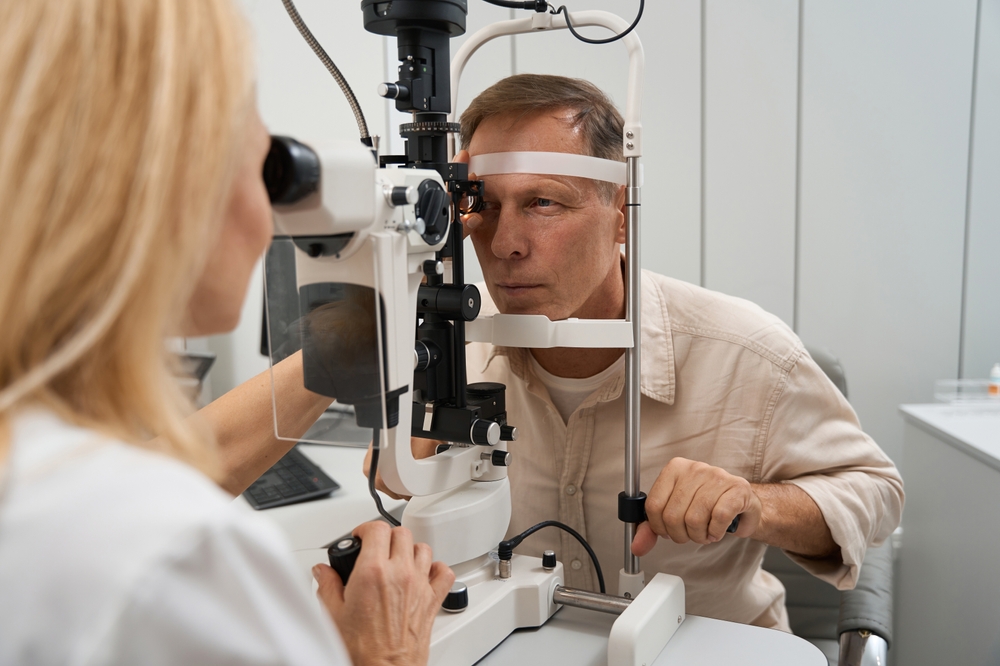How Often to Visit Your Ophthalmologist After 40

Do you remember when you had your last eye exam? If not, it may be time to schedule one.
Eye exams test for more than just refractive errors like farsightedness, nearsightedness, and astigmatism. They can also help detect eye conditions early on so that you can receive prompt and effective treatment.
Keep reading to learn more about how often to visit your ophthalmologist after 40.
How Often Should You See Your Ophthalmologist?
The guidelines for how often to see your opthalmologist depend on your age and other risk factors, such as health history and family history. The American Academy of Ophthalmology recommends that adults should undergo a comprehensive eye exam once in their 20s and twice in their 30s.
At age 40, you should start attending eye exams at least every two years. However, if you have certain risk factors for eye conditions, you should schedule exams at least once a year.
Risk factors for eye conditions include:
- Family history of eye conditions
- Wearing contact lenses
- Severe nearsightedness or farsightedness
- Previous eye surgeries or injuries
- Functional vision in only one eye
- Certain health conditions, such as diabetes
- Taking certain medications such as corticosteroids
If you are at a higher risk for developing eye conditions, it is crucial you undergo regular eye exams. Degenerative conditions like glaucoma can cause irreversible vision loss and often don’t present with symptoms until significant damage has already occurred.
This is especially important for patients over age 65, who should attend eye exams at least annually. By keeping up with your eye exams, you can stay on top of your eye health and prevent vision loss.
What to Expect at Your Eye Exam
Your ophthalmologist at Berg Feinfield Vision Correction can perform a variety of tests to assess your vision and eye health. These tests may include:
External Eye Exam
Your ophthalmologist will use a light to examine the outside of your eyes and check if your pupils respond as they should.
Refraction Assessment
During a refraction assessment, your ophthalmologist will have you look through a device called a phoropter. They will switch between lenses to determine your best prescription for glasses or contacts.
Visual Acuity Test
A visual acuity test can measure the sharpness of your vision. You will be asked to read letters from a chart, covering one eye at a time.
Eye Muscle Test
Your opthalmologist can use an eye muscle test to monitor for weakness or uncontrolled eye movements by asking you to look in specific directions.
Visual Field Test
A visual field test can measure your peripheral vision. This test is useful in detecting glaucoma, as peripheral vision loss is typically the first symptom that presents.
Tonometry
Elevated eye pressure is also an indicator of glaucoma. Tonometry measures eye pressure to determine your risk of developing the condition.
Optomap
An Optomap uses ultra-widefield imaging to give your ophthalmologist a comprehensive view of the retina. This can help detect conditions like diabetic retinopathy, glaucoma, and age-related macular degeneration.
Slit-Lamp Examination
Your ophthalmologist can use a slit lamp to see the cornea, lens, iris, and anterior chamber of your eye to screen for common eye conditions.
Retinal Examination
You may undergo a retinal examination with or without dilation so your ophthalmologist can examine your retina, choroid, blood vessels, and optic disc.
The tests your ophthalmologist conducts will depend on your risk factors and eye health. If you are undergoing dilation at the exam, you should have someone drive you home, as it can temporarily impair your vision.
By scheduling frequent eye exams, you are not only ensuring your prescription is up-to-date, but you are also protecting your vision from conditions that can cause serious damage. The older you get, the more your risk increases, which is why it is vital to attend regular eye exams after age 40.
Do you want to take control of your eye health? Schedule an appointment at Berg Feinfield Vision Correction in Burbank, CA, today!








